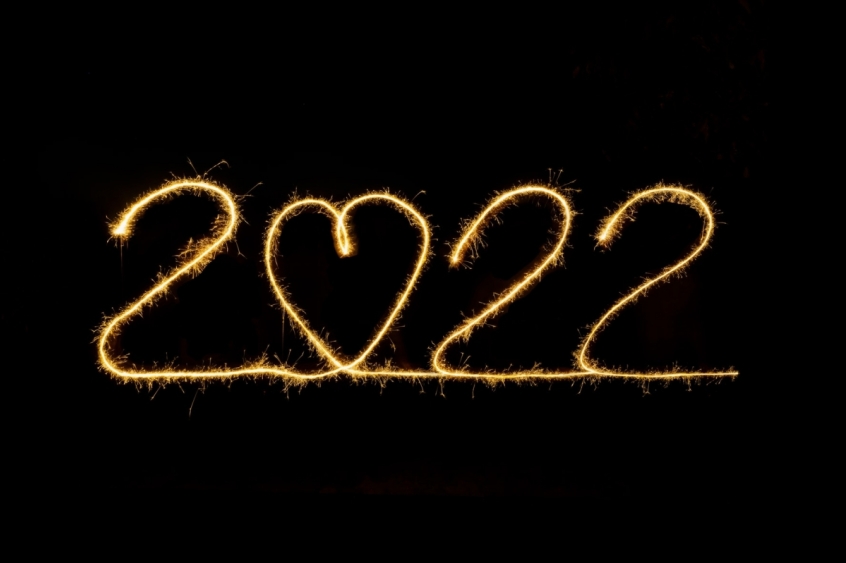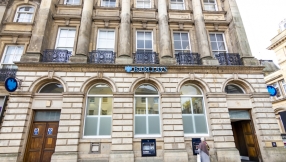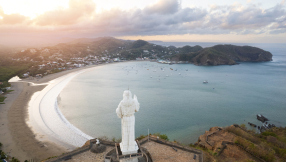
I've been going to 'Watch Night Services' for as long as I can remember, and in our church December 31st, New Year's Eve, is one of the most important services of the year. It's far more essential than Christmas Eve or a Christmas Day service, and although we celebrate both, neither is as crucial as Watch Night.
In a Black Pentecostal church, Watch Night is the one service in the year when everyone can reflect on the past, look forward to the new year, and in the word of the old spiritual, thank God that "through many dangers toils and snares, we have already come, and it's grace that's brought us thus far, and grace will lead us on".
The idea of evening services or vigils is part of early Christian tradition and were once held before essential feasts. The word 'vigil' comes from the Latin word 'to watch,' and in the sixteenth century, Puritans in the newly reformed church in Europe were so dissatisfied with the heavy drinking, rowdy and unruly behaviour that characterised New Year's Eve, that they campaigned to have it reformed and given a religious meaning.
The Methodist Church took up this idea in the eighteenth century, and the Watch Night Service we now know is the result of their campaign.
The Moravians in what is now the Czech Republic were the first to hold these services, and in 1770, John Wesley took the idea with him to America where it took root, grew and developed.
At first, whenever there was a full moon, Methodists held these services at St George's Church in Philadelphia. They declined over time, replaced by what we now know them as today.
In Britain, a 'Watch Night Service' in Black Pentecostal churches is an idea Caribbeans took with them when they came to Britain. American missionaries first brought the Pentecostal religion to Jamaica along with the idea of Watch Night Services. From there, it grew, spread outwards to other Caribbean English-speaking Islands, and when in the 1950s and 60s Caribbeans came to Britain to work and to establish their churches, 'Watch Night' became an essential end of year service.
A Watch Night Service usually begins around 7:30PM and is the one time in the year when everyone in the Black community is likely to be in church, even though today it might be the only time. It is a time of singing, praying, praising, scripture reading, a sermon, and until recently, giving testimonies.
At about five minutes to midnight, the congregation is directed to start praying. At the stroke of midnight and the beginning of the New Year, the praying stops, and everyone walks around the church, greeting, hugging and wishing each other a Happy New Year.
In many churches, the service ends soon after, although until recently, this was followed by a gospel concert that would last until the early hours of the morning. They were so popular in the 1980s that young people would do the rounds of concerts in their area, sampling what was on offer.
What makes Watch Night Services so significant within the Black community is that at the end of the year, Black Caribbeans who are generally religious feels they should be in church to give God thanks for the past year and repent of any misdeeds. More importantly, those who do not regularly go to church believe that if the new year finds them in church, the year will go well, with the converse also true. Moreover, they think that if Christ were to return on the last day of the year, at least they'd be in church and therefore be saved!
Today, African churches have taken up the mantle of Watch Night Services, and although they don't call their service' 'Watch Night' but rather a 'Cross Over' service, they are essentially the same, with now a huge gospel concert as part of the long night of a musical event.
To underpin their Watch Night services, Black Pentecostals theologically use several biblical references to emphasise the idea of Jesus' return, and stress the notion of watching, praying and being prepared. They often quote the story of Jesus in the garden of Gethsemane (Matthew 26:38-42), Jesus before His crucifixion, and Jacob in the Old Testament, wrestling with an angel until daybreak as examples of watching, being prepared and in Black Pentecostal language, waiting for 'a breakthrough'.
Watching, praying and being prepared is central to this church community, and another Bible story they often use is the story of the 'five wise and the five foolish virgins' (Matthew 25:1-13).
While I was brought up with this and felt comfortable with it, for many years I didn't know, and it was never emphasised, that Black Americans have another take on Watch Night Services or 'Freedom Eve', as they call it, as it has both a religious and cultural significance.
Just as Black Pentecostals watch and pray in their Watch Night services, on the night of December 31, 1862, American slaves watched and prayed also. They were waiting for news of their impending freedom as they had heard the rumour that President Abraham Lincoln was about to issue a declaration freeing them from their servitude. On account of this, they gathered in their huts and cabins, and stayed up all night waiting for the news of their freedom.
When the next day came, although what became known as the 'Emancipation Proclamation' didn't grant all slaves freedom - that came with the 13th Amendment - it did however free around three million slaves from the South.
Since then, Black Americans have celebrated this day in their Watch Night Services, and on New Year's Day, they cook a big meal to remember this important milestone.
Historically, the food they use for the meal harks back to Africa and generally consists of salted pork and ham, followed by black-eyed peas, collard greens, and cornbread. The greens signify prosperity, the cornbread is said to imitate gold, and black-eyed peas are said to be lucky or bring good fortune.
This year, 2022 marks the 160th Anniversary of 'Freedom Eve', and while much has been done, many battles won, there is much that still needs doing. However, 'despite the toils and snares', we can still marvel at the faith that has sustained us all, so much so, that in the words of another spiritual:
Tell me how we got over, Lord
Had a mighty hard time coming on over
You know my soul look back and wonder
How we got over?
Roy Francis is an award-winning former BBC 'Songs of Praise' producer and the author of 'Windrush and the Black Pentecostal Church in Britain'.













